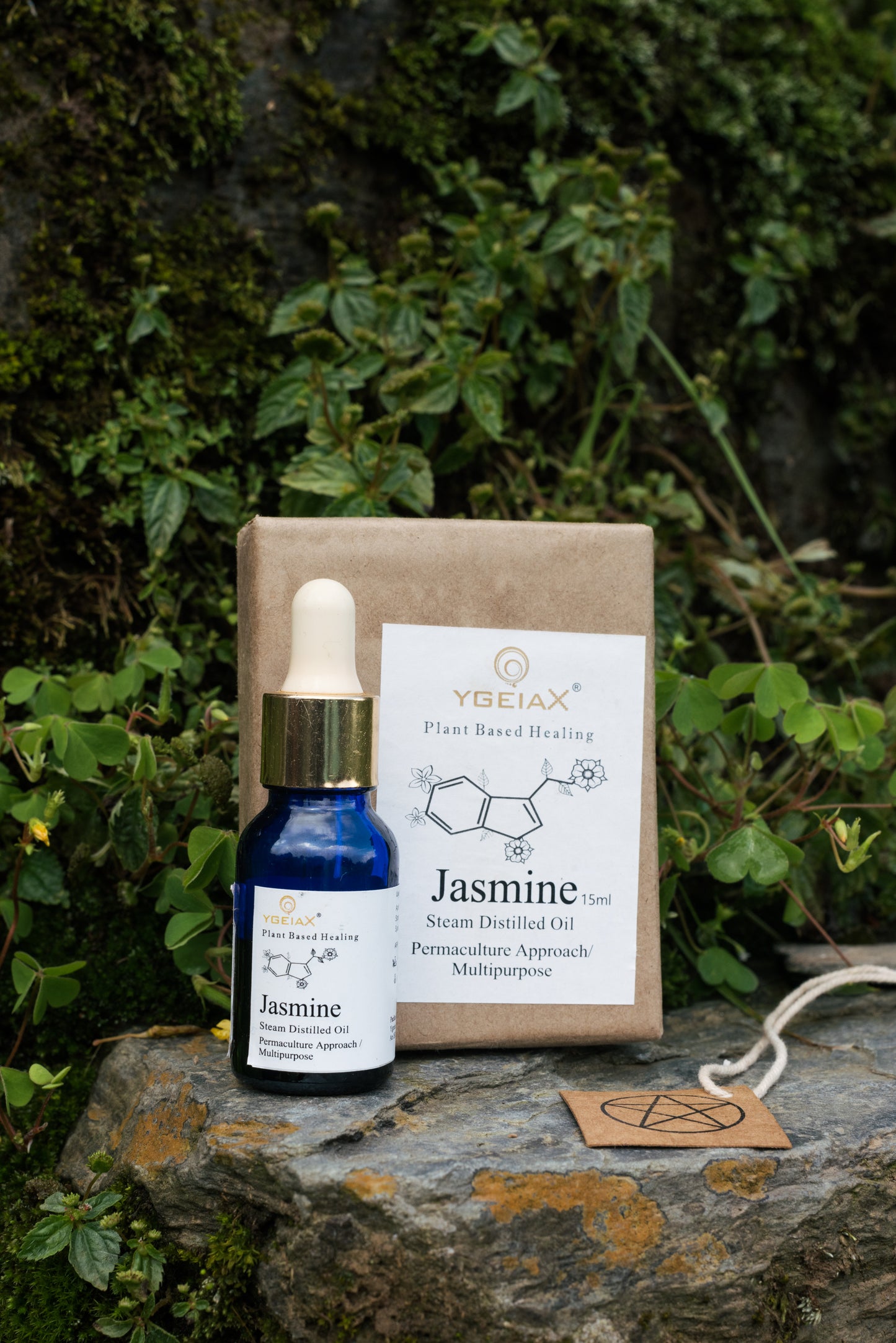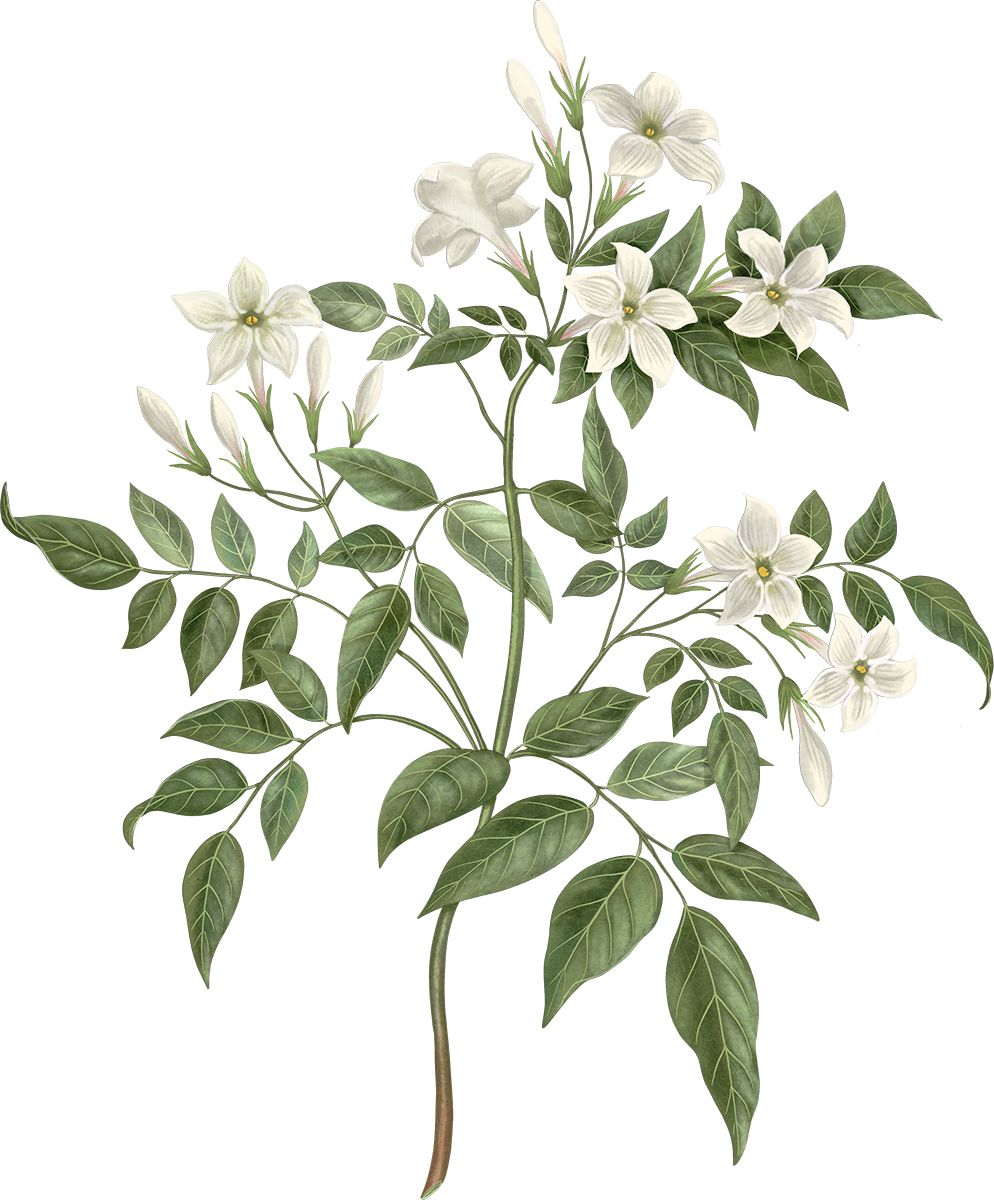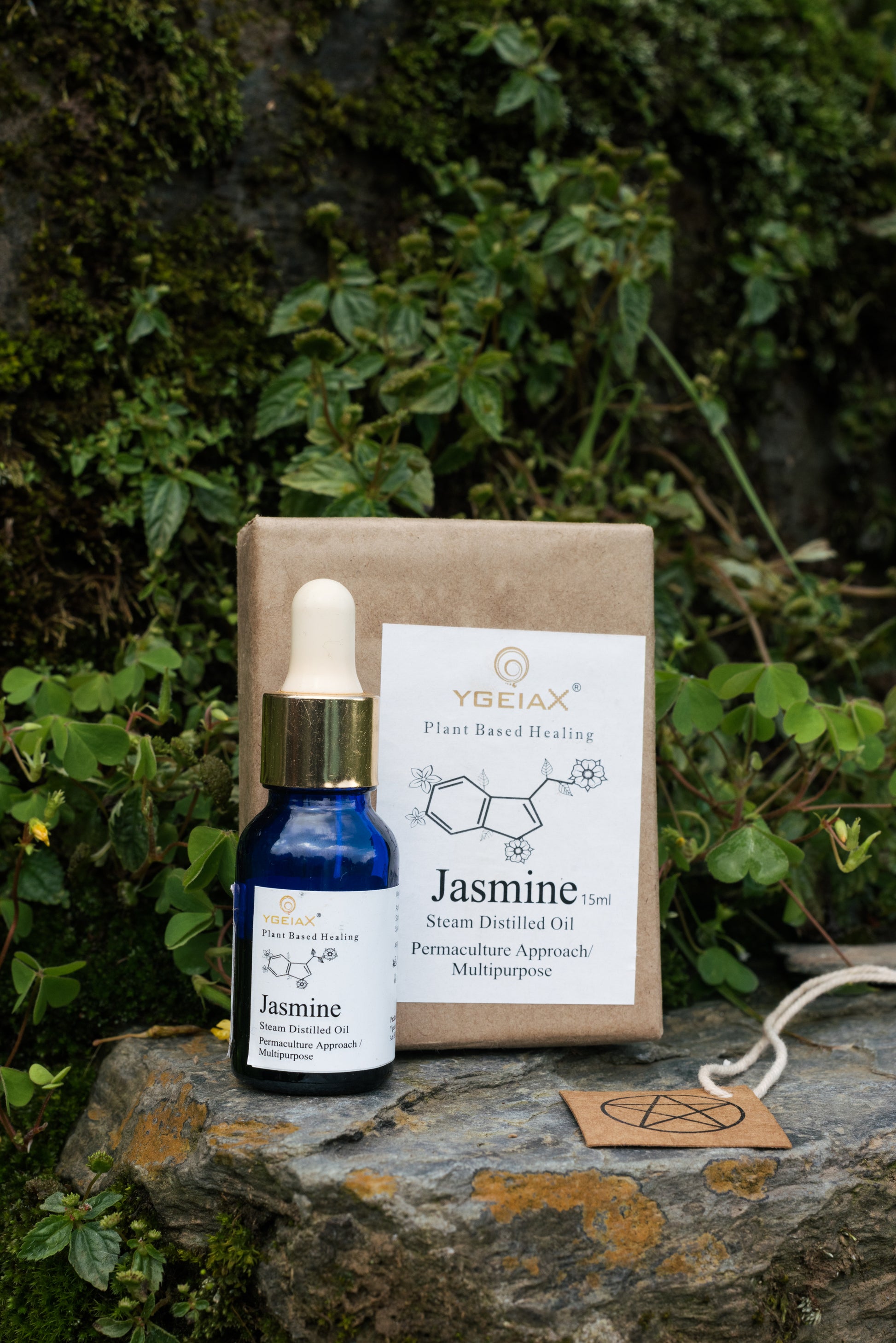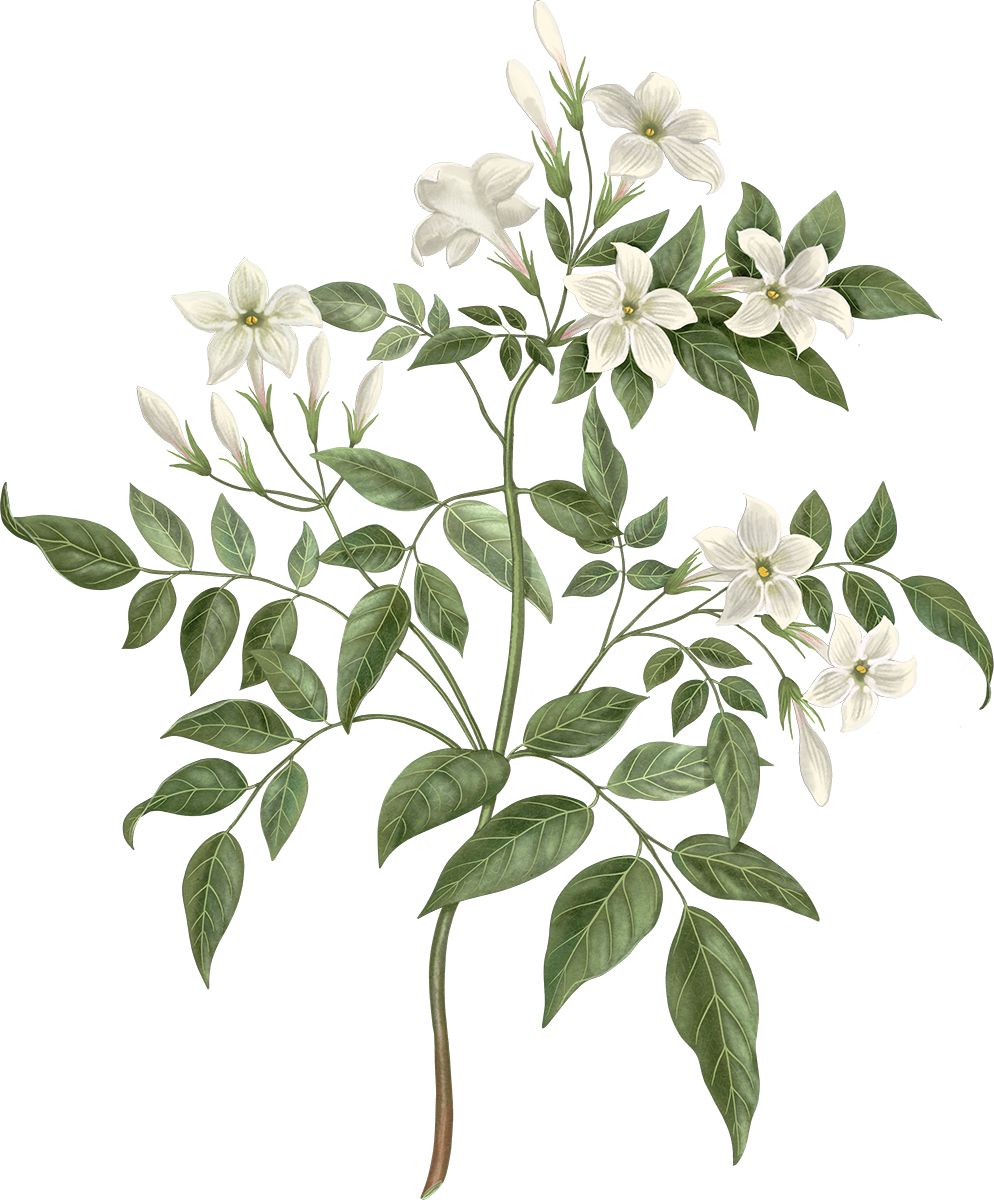Jasmine Steam Distilled Oil
Jasmine Steam Distilled Oil
Couldn't load pickup availability
Jasmine has been utilised in human culture for so long that its exact place of origin remains a mystery, but most believe it to be native of central Asia. Its name comes from the Persian yasameen, which means "gift of god."
Jasmine has been used for hundreds of years as a natural remedy for depression, anxiety, emotional stress, low libido and insomnia.
Aromatic profile: Warmly floral, deep rich, masculine, musky, and exotic.
Benefits of Jasmine
The health benefits can be attributed to its properties as an antidepressant, antiseptic, aphrodisiac, antispasmodic, galactagogue, sedative, a uterine substance and strengthen the nervous system.
1. Antidepressant
A study that looked at jasmine essential oil found that when compared to a placebo, jasmine oil increased blood oxygen saturation, breathing rate, and blood pressure. The participants in the jasmine oil group also reported feeling more alert. The researchers concluded that the stimulating and activating effect of jasmine oil could be useful for relieving depression and improving mood.
Jasmine oil used in aromatherapy massage was found to be particularly effective.
Another study published in the Journal of Health Research examined the effects of jasmine oil inhalation on the central nervous system and mood. When inhaled, jasmine oil affected brain activity and mood states and the participants reported feeling more positive, energetic, and romantic.
2. Antiseptic
Jasmine oil has been found to have antibacterial properties. Its antiseptic effects have been extensively studied and found to fight various bacteria.
One study found that natural jasmine oil derived from the Jasminum sambac plant, as well as its synthetic blends, showed antibacterial activity against one strain of E. coli.
In another study, the oil showed antimicrobial activity against several oral microorganisms, including E. coli, L. casei, and S. mutans. It also worked as an antimicrobial agent against all strains of candida, the bacteria that causes oral thrush.
3. Aphrodisiac
Jasmine’s romantic scent has long been believed to have an aphrodisiac effect. It’s been worn as a fragrance, and in parts of India, jasmine flowers are often included as décor at weddings in the newlyweds’ bedroom to set the mood for romance.
4. Antispasmodic
Jasmine is used as a home remedy to treat spasms in various parts of the body, from cramp-producing stomach spasms to spasmodic cough.
There’s very limited scientific evidence on jasmine oil’s ability to reduce spasms. One study did find it effective in reducing labour pain when diluted and used for massage. Even though the evidence is limited, using jasmine oil to massage muscles certainly won’t hurt and may provide some relief from spasms.
5. Wound Healing
Jasmine oil may have a cicatrizing effect and promote wound healing through the formation of scar tissue. We know that jasmine oil has antiseptic properties that are beneficial in treating skin infections.
According to research, jasmine oil also has anti-inflammatory properties and can be useful in general skin care and the treatment of psoriasis.
A recent animal study found jasmine extract was able to speed up healing of chronic wounds, such as diabetic ulcers. It significantly enhanced wound contraction and granulation tissue formation, and increased new blood vessel formation.
Applying diluted jasmine oil to minor wounds, such as small scratches and cuts, may help them heal faster.
6. Decreases menopause symptoms
A small study found that aromatherapy massage once a week for eight weeks greatly reduced menopause symptoms. The massages were performed using a combination of essential oils of jasmine, lavender, rose, and rose geranium in a carrier oil.
7. Galactagogues
Galactagogues are herbal or synthetic substances that may promote lactation. The jasmine flower is a popular home remedy believed to improve lactation.
Lactating mothers in parts of South India wear strings of jasmine flowers in their hair because of its association with increased lactation and delayed ovulation.
Some experts believe that the brain effects of jasmine inhalation may be connected to hormonal changes that result in increased lactation. This theory remains unproven and there is no scientific evidence linking jasmine to increase lactation.
8. Sedative
While some evidence has confirmed that jasmine oil can increase alertness and energy levels, evidence also shows that it can have a calming effect.
An older study found that the odour of jasmine tea at the lowest concentration had a sedative effect on mood states and nerve activity.
In a more recent pilot study, people with generalized anxiety disorder were asked to inhale jasmine essential oil for 5 minutes a day over 10 days. Jasmine essential oil appeared to significantly bring down the elevated state of mind and improve symptoms such as insomnia, palpitations, and irritability
15ml
Share




